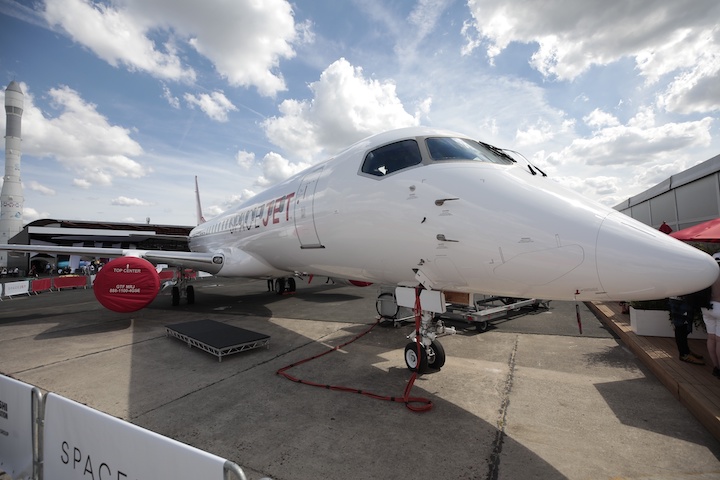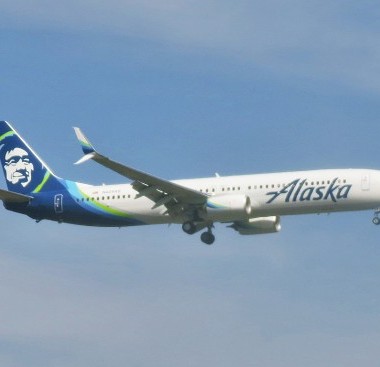Japan really wants to build airplanes, $33 billion project shows
Japan’s trade ministry wants to get the country’s aviation ambitions back up in the air.
The Ministry of Economy, Trade and Industry is bringing together domestic and foreign manufacturers, as well as airlines, with the goal of introducing a new aircraft by 2035. The move comes a year after Mitsubishi Heavy Industries Ltd. scrapped the development of a regional jet after 15 years of effort.
The government has long sought a domestically produced passenger aircraft. As part of the latest attempt, the ministry will back the ¥5 trillion ($33 billion) effort over the next decade to build a next-generation aircraft fueled by hydrogen or alternative sources of energy, officials said in a briefing Wednesday. The announcement comes as Boeing Co. seeks to restore confidence in its airplanes.
“Japan needs to dive into profitable and value providing territories other than providing some parts for the airline industry,” Masuo Kuremura, director of the ministry’s aerospace and defense industry division, said during a briefing.
Mitsubishi Heavy, Kawasaki Heavy Industries Ltd. and other manufacturers are major suppliers to Boeing and other aircraft manufacturers, including Airbus SE. Mitsubishi’s SpaceJet, backed by ¥50 billion in government investment, was to be the country’s first homemade jet in half a century. Instead the scuttled program racked up more than ¥1 trillion in sunk costs.

Mitsubishi Heavy said last year that it lacked the understanding and technological know-how for SpaceJet to materialize, and also struggled to gain regulatory approval in the US. There was also pressure to electrify and decarbonize, forcing the manufacturer to reassess its strategy.
Global air passenger demand is projected to double in 20 years and aggressive investment in Japan’s aircraft industry will lead to annual growth worth ¥6 trillion, as much as 5 times from the current level, according to the trade ministry.
The new strategy focuses on strengthening supply chains to support Japan’s aircraft industry. The private and public sector will explore hydrogen engine technology and clean energy options at a time when the airline industry has set a target of eliminating carbon emissions on a net basis by 2050.
Unlike last time, the latest project will include multiple players including automakers Subaru Corp., Mitsubishi Heavy and Kawasaki Heavy Industries Ltd. and heavy machinery maker IHI Corp., Japan space agency, as well as energy-related organizations.
“We will need to build new technology” and collaborate with foreign OEMs, Kuremura said.
Similar Stories

Citywide sale-leaseback highlights Phoenix Airport submarket
View Article
Silk Way Alat Free Economic Zone Company and Modern Construction Group sign landmark agreement
View ArticleCPaT announces new contract with expanding airline, Blue Jet Airways KG
CPaT Global, the world’s leading provider of distance learning for the airline and aviation industry, today announced a new contract with Blue Jet Airways KG. CPaT will provide Blue Jet…
View Article
Norse Atlantic expands to Stockholm with new direct flight to Bangkok
View Article
LATAM Cargo Group launches pioneering initiative in Chile with recycled plastic pallets
View Article
WorldACD Weekly Air Cargo Trends (week 46) - 2024
View ArticleGet the most up-to-date trending news!
SubscribeIndustry updates and weekly newsletter direct to your inbox!





